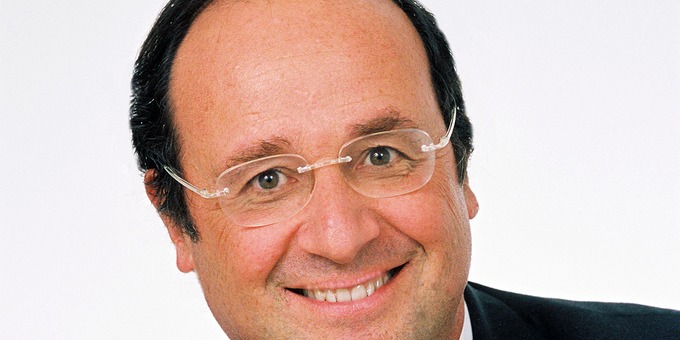
Dagens krönika, författad av Benjamin Senes, är en del i en europeisk debatt om “black labour”. Debatten lanserades av Policy Network, med skriften “In the Black Labour: Why fiscal conservatism and social justice go hand-in-hand.”, och berör socialdemokratiska partier och ekonomisk politik. Utgångspunkten för författarna bakom “In the Black Labour” är att socialdemokratisk ekonomisk politik måste utgå från sunda statsfinanser, och att det inte utesluter välfärdspolitik. Senes placerar debatten i en fransk politisk kontext, inför det stundande presidentvalet.
—
To some extent, the debate on “In the Black Labour” reflects the challenge now faced by all countries combining unsustainable levels of public debt with worryingly low growth prospects. France belongs to this category, as does the UK. In both countries, the question of fiscal austerity now tends to dominate the political debate and puts the centre-left opposition in an uncomfortable position. The ability to offer a convincing response in this respect will be decisive in this year’s French presidential election.
There is, however, one crucial difference between the two countries. In Britain, the question is whether Labour risks becoming unelectable by failing to appear as tough as the governing coalition on fiscal consolidation. In France, despite a lower level of deficit, the sense of urgency is stronger. This is because the country might well be the next target in the eurozone sovereign debt crisis. France could soon be forced – just like Italy is today – into taking the cure of radical fiscal austerity, leaving little room for autonomy in government decisions.
Even if this pessimistic prediction does not materialise, the immediate future of eurozone countries is bound to be one of reinforced fiscal discipline. Like it or not, this will be part of the institutional constraints of any future French government. The proposal of a new Treaty agreed at the last European Summit even provides that a German-style “golden rule” will be enshrined in all national constitutions.
As a result, the question for the centre-left is not only whether or not it should embrace some form of fiscal conservatism. In a way, it already has. François Hollande has made clear that fiscal consolidation would be one of his top priorities. He has managed to convince centre-left voters to choose him as the socialist candidate against Nicolas Sarkozy. The question is rather how to cope with the inescapable fiscal constraints in the years to come. Hollande has to set-out a vision to convince the electorate that he represents a credible alternative to a second Sarkozy mandate.
Yet the official platform adopted by the Socialist Party last year has now lost part of its relevance, having been based on overly optimistic growth assumptions. It is now a question of choosing priorities and making them clearer to voters. In this sense, the “prioritisation” that “In the Black Labour” supporters call for may indeed be the “true currency” of the 2012 French elections. But the challenge for Hollande is also to show voters how a centre-left government would handle things differently from Sarkozy. In part, this means convincing them that France can still choose its own destiny.
So far, Hollande has mainly attempted to achieve such differentiation by putting forward fiscal justice as his main priority. As one of the weak points of Sarkozy’s time in office, this has been effective – but it may not be enough. France already has one of the highest ratios of taxation to GDP in the world. Sharing the tax burden more equitably is an objective worth pursuing and it places the emphasis on the most dismal aspects of Sarkozy’s record in government. This message does not, however, fundamentally address the public debt issue or the country’s poor economic prospects.
Simply promising “blood, sweat and tears” with a pinch of tax fairness may not be the best way forward for the centre-left. Hollande knows that his chances of winning depend heavily on his ability to restore hope in a progressive future for the country. This means challenging fatalist attitudes towards France’s industrial decline and economic stagnation. Hollande’s recent emphasis on “building the future”, his insistence that his priority will be to improve the prospects of the young, is a way to appeal to voters’ hopes while acknowledging the difficulty of present times.
As Hollande himself puts it in his Letter to the French, which was published in the daily newspaper Libération on 3rd January, “the recovery of both our public accounts and our productive structure will take a long time. Winning our financial sovereignty back will necessitate considerable efforts and, above all, more justice. A return to confidence will call for a politics that mobilise the French around the future: education, research, culture, the energetic and ecological transition”.
Such an emphasis on the future involves shifting the focus from fiscal responsibility to enhancing economic growth. The necessity of sound public finances forces France to rethink its socio-economic model, from one based on consumption and debt to one based on production. Only with higher levels of growth can France halt the decline of its industrial base, create more jobs, boost purchasing power and continue to finance a solidaristic welfare regime.
The recognition that social progress ultimately depends on the creation of wealth implies an end to French complacency with public spending. Social expenditure, in particular, must “be backed by tax revenues and the fruits of economic growth”, as Black Labour proponents have argued.
Nevertheless, this growing focus on growth in the French political debate also reflects burgeoning doubts about fiscal conservatism. Austerity plans being imposed in Europe may be counter-productive as fears of recession are turning into reality. This feeling has not diminished the importance of fiscal responsibility in centre-left discourse and the growing consensus on the necessity of fiscal consolidation in the medium term. But it is a reminder that there are risks to fiscal conservatism becoming a dogmatic principle or an end in itself.
This explains why Hollande has so far been highly critical of radical forms of fiscal conservatism, such as the German “golden rule”. He has fought Sarkozy’s attempts to impose similar provisions in the French constitution and has announced his intention to renegotiate the agreement reached at the European Summit in December. What matters, he insists, is for governments to manage public finances soundly rather than subjecting them to rigid rules which may not be adapted to all economic contexts and could lead to unintended perverse effects.
Putting the country back on a more productive path will be a lengthy process. It may well involve many institutional and structural reforms, but it will also require more public spending in certain areas. In part, this can be achieved by reforming the State and better allocating public funds. But there are huge political difficulties involved in such a process. The imposition of an overly stringent “golden rule” could yet end up stifling any form of growth-enhancing public investment.
Hollande’s opposition to fiscal constitutionalism could be challenged by pointing out the consensus on the need for stricter financial rules in the eurozone, and the lack of credibility in proposing unlimited government discretion in a country that has not balanced its annual budget since 1974. However, a constitutional limit of 0.5% on the structural deficit could have perverse effects in the future as it is based on the economically dubious idea that public debt should be eradicated altogether in the long run. The answer probably lies in avoiding an indiscriminate application of austerity measures and in trying to somehow take into account the nature of public spending when devising fiscal rules.
Irrespective of whether opposition to the “golden rule” is justified or not, the roadmap for the centre-left is clear: a credible path towards fiscal consolidation and debt reduction in the medium term must be combined with a focus on investment and productivity as necessary preconditions of social progress. It is still possible, of course, that market forces will impose a more radical form of fiscal conservatism. However, chances for the centre-left to win the presidential election are slim if it does not convince voters that economic and social progress is at hand in the near future.
Benjamin Senes teaches at the Institute of Political Studies in Paris (Sciences Po).
Följ Dagens Arena på Facebook och Twitter, och prenumerera på vårt nyhetsbrev för att ta del av granskande journalistik, nyheter, opinion och fördjupning.


































